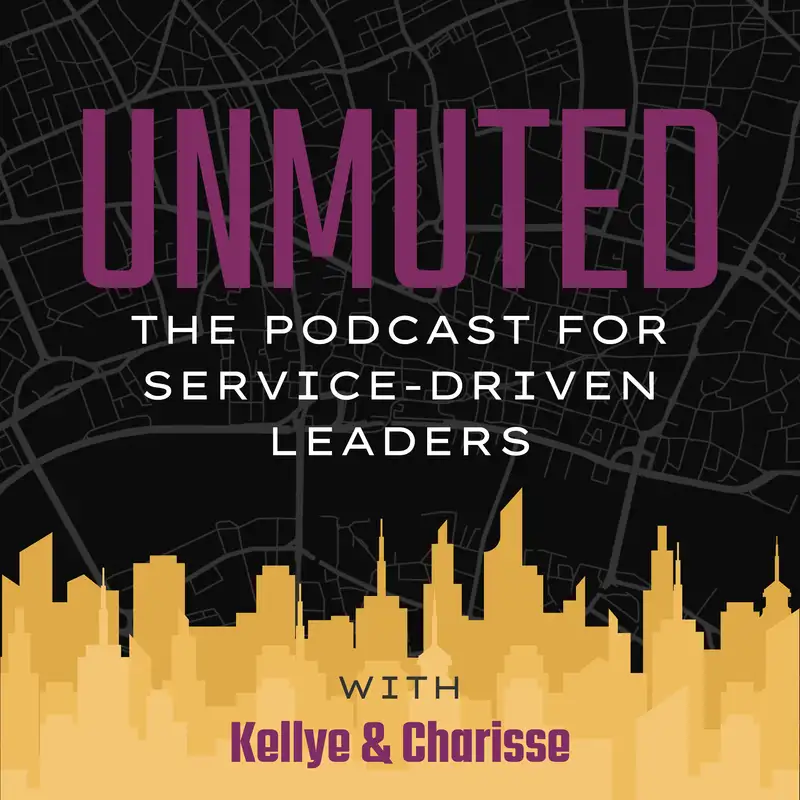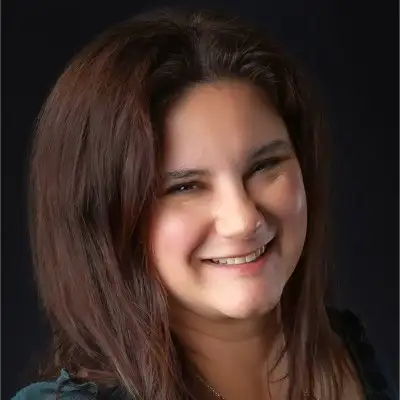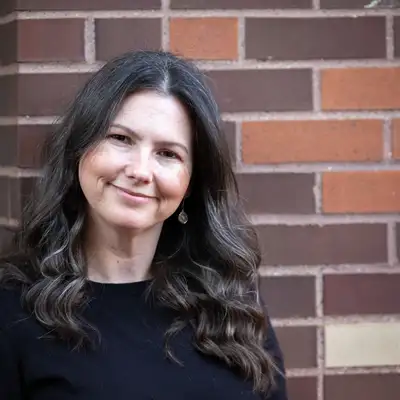Hello, and welcome to another episode of unmuted, where we're talking about the personal side of professional leadership in local government. I'm your host, Kellye Mazzoli, a former assistant city manager turned city executive coach.
Charisse:And I'm your host, Charisse Deschenes, a former local government leader turned health coach. Our mission is to help you prioritize your personal well-being so you can lead with strength and purpose. Let's get on with the episode. Welcome to another episode of unmuted. Today, we're talking about leadership, but not the kind that shows up on organizational charts or performance reviews.
Charisse:We're talking about turning the mirror inward and toward the leader within.
Kellye:Exactly. So instead of focusing on what we do as leaders, we're exploring who we are when we lead and how that self awareness shapes everything from our tone to our team's trust.
Charisse:So before we dive in, let's start with a little leadership trivia just for fun. So a question for you all. Who famously famously said, leadership is not about being in charge. It's about taking care of those in your charge. Take a guess now.
Charisse:We'll drop hints during the episode and reveal the answer at the end.
Kellye:This is fun. I like this trivia. So the quote was leadership is not about being in charge. It's about taking care of those in your charge.
Charisse:Yes. Yes. All right. Well, do you have any ideas, I
Kellye:do have a couple of ideas. You know, it's, it's someone who's known for leading through service, humility, and presence. So that's a that's a clue that really ties directly back into our theme today. And as you listen, see if you could connect that quote to how you lead. Because leadership isn't only about your position, it is truly about your presence.
Kellye:Alright. So today, I think we're going to talk about three simple but very powerful ideas. We're gonna be talking about your inner story, your impact, and your growth edge. Now, what I mean by inner story is it is the why behind how you lead. That's your inner story.
Kellye:Your impact is how your style lands on others. And then your growth edge is where you're still evolving as a leader.
Charisse:Right, Kellye. And so let's begin with the inner story. Perfect. Every leader has an origin story, right? The invisible script that kind of shapes who you are and how we lead.
Charisse:It's the experiences from mentors, teachers, coaches, where you learn maybe some of your survival strategies as well. But for for some of us, leadership began a long time ago before we had a title. And maybe you learned that being in control meant that it was being safe or that being helpful meant that you're being valued in some way. So those lessons kind of stick with you as you mature and grow throughout your life. Right?
Charisse:Right. So I see those moments in my own journey where, you know, I could lead from steadiness through chaos as that was kind of learned through experience. And, you know, sometimes I would become calm in the storm, but maybe I needed to carry some of that less alone where I had made some certain decisions to hold on and be the one that carries the load. And that was my own decision to do. But, just awareness of those patterns didn't come from a workshop.
Charisse:It came from paying attention to myself. Right? But yeah, I think that that's like one experience, just thinking of your own experience in life and where your origin story came from from that, that experience. And that was one example, but you know, you have many others where you have those, you know, coaches and that you just look up to, that's able to bring people together. You have those silent leaders in your life.
Charisse:So where did that come from and how did that shape you in a way?
Kellye:And I think you said that control, like being in control meant being safe. That really resonates with me. I think we've talked about that and covered that in episodes prior to this about why I might have thought that. But I think, yeah, I mean, really that is the key that that leadership begins with self understanding and awareness, paying attention to yourself. Early in my career, I thought that leading really meant being decisive and unshakable and just super, super confident, right?
Kellye:Like that I had to know what I was doing. I had to know the right decision. I had to, I had to do the right thing all the time. And over time though, and I learned this lesson very, very early on, I realized that it was actually about helping others rise. And if anybody ever asked me in a job interview, or if anybody ever asked me what is the best thing about city management or my biggest accomplishment, I always say it is my high school interns.
Kellye:I still follow them today. They are so impressive. They have done such great things in their own industries and careers. Several of them stayed in city management, and so this has been, like, you know, fifteen, twenty years in the making. But helping others to rise is really where I get the most sense of accomplishment.
Kellye:So, but I would say that that shift didn't happen overnight. I didn't know it right in the beginning, but it came from noticing when my old definitions of what strong meant, what right meant, were keeping maybe others from, from contributing. So when you understand where your leadership story comes from, I think that you can lead with intention and instead of being just on autopilot, that performative leadership that we talk so much about. And I think it's the difference between reacting to your past and writing your next chapter very consciously and with intention.
Charisse:Yeah. I love that, Kellye. And just reflecting like both of us are attracted to coaching in a very similar way because you want to help others and you want to see them grow and probably have both practiced that in our careers throughout, you know, the local government. And, I really respect that you said that because I think that's so important that, you know, leadership is about helping others rise. Absolutely.
Charisse:Yeah. So speaking of leadership origins a little bit, here's your hint for the trivia question.
Kellye:Oh, I need another hint.
Charisse:See if I can. The person that we quoted earlier started as a military officer and later became known for pioneering the concept of servant leadership. That's big. The idea that leaders serve first, not command first. That's what we were talking about.
Kellye:That's a big clue.
Charisse:And keep that in mind as we move forward.
Kellye:Yeah, that's a big clue. So that might might seal the deal for others to be able to figure out who it is. So let's go into the impact part of this episode. Right? Let's talk about how our leadership lands or impacts or feels to others.
Kellye:Because leadership isn't just about what we intend. Intention's important, But it is also about what people experience in our presence. So I once worked with a team who was led by someone who was just an incredible visionary. And every day was a new idea, a new direction, a new possibility. And what I can say is that the energy was really amazing, but some people on my team did not thrive on that and they were exhausted.
Kellye:And so it's really kind of funny because sometimes we think that leadership is all about the inspiration. Like we hear those inspiring keynote speakers, motivational speakers, but the team actually didn't need more inspiration. What they really needed from us was consistency. And what I saw was a pivot that once that leader knew and realized that people were sort of exhausted by the energy, then there was this shift and everything shifted, everyone shifted and our productivity went through the roof. So make sure you know, like how your leadership style is landing to others.
Kellye:What impact are you actually having? Are you energizing them? Are you exhausting them?
Charisse:Yeah. That's a really good example, Kellye and local government, especially we often underestimate like that, how much our mood or tone pace, all of it kind of sets that emotional temperature for everyone else. And if we're calm, people maybe breathe easier. And if we're anxious or distracted, they absorb that too. I think we've talked about that before, but really does.
Kellye:Can I add to others? I mean, yeah, let me add here too, is that, I mean, it is really, really true. There is actual science out there that shows that the leader is in a position to literally affect everybody around them. So if you are calm, people will sense that. You don't have to say I'm calm, but they will sense that, and they will also breathe easier.
Kellye:But if you're anxious and you're breathing faster, more repetitive, like people end up without even knowing it subconsciously just absorbing your same energy and they try to mirror it back to you even without thinking about it. It's really, really important to think about if you're anxious, you're distracted, if you're calm, like these will affect your team a 100%
Charisse:Your if you're a team totally reads the room there. I do remember examples of like having one of my, a leader in my career that would run, like run down the hall to meetings and stuff like that. And I remember feeling that energy of anxiousness and then also having a leader that is more calm and introspective and just would breathe through the difficult, difficult, you know, decisions or things that were happening. And you could feel that as well. So I thank you for mentioning that as something that we all need to take a step back and really think about and how much we really impact other people.
Charisse:I mean, that's what we're trying to do is help guide and give direction. And then in that moment when you might be really stressed out yourself, you might go into panic mode and not realize how that impacts your staff. So thank you for sharing that. So maybe when you're thinking internally or just reflecting on this episode, maybe think about what it's like to be led by you. Not not what it's like to be not what you think it's like, but what it actually is to be led by you.
Charisse:Maybe you're proud of your direct communication style, but maybe others experience in an abrupt way. Or maybe you're really super collaborative, but others find it indecisive. So understanding that your impact doesn't mean changing your personality. It means owning the emotional footprint that you leave behind.
Kellye:Yeah. Own it. I love that. And that awareness builds trust faster than any speech or vision statement can do. Like teams don't, they don't follow for perfection.
Kellye:They follow authenticity. When people feel that you're open to seeing yourself clearly, they start seeing you also as a human. Right? Like if you start treating yourself as the real person and human being that you are oddly enough, the people around you will start seeing you as human too, not superhuman. And that is where the connection begins.
Kellye:Whenever those that you are leading can see a little bit of themselves in you.
Charisse:Yeah. So now maybe looking a little bit more about growth. And so once you understand your story and your impact, the final step is your growth edge. That place where awareness meets action. So in the book, Good to Great by Jim Collins, just letting you know, it's not Jim Collins.
Charisse:He talks about having the right people on the bus, but great leaders also know when to adjust how they drive. And expanding your range might mean that you're learning to pause instead of push or delegate instead of direct. Sometimes it's realizing that you're not just, you're not the hero of the story. Your team is the hero of the story.
Kellye:And none of that is possible when you're depleted. No. You can't do it if you're depleted. I mean, really requires presence and presence requires rest, whether we like it or not. So I will say this, the most effective leaders that I know that I coach, they protect their well-being fiercely.
Kellye:They take vacations regularly. They take time away from the office and they really take time away from the office, like real, you know, not being in their email, not being completely available because they know that burnout will limit their awareness and flexibility. So wellness, I don't think is a separate thing from leadership. I think it is wellness that allows leadership to be human. Maybe your growth wedge isn't about adding something new.
Kellye:Maybe the reality is you should be thinking subtracting what's in the way of your clarity. Just kind of
Charisse:a Yeah. That's a really good thought. So this episode is closing and coming to an end a little bit, but we have to talk about the trivial Yeah. And give you a little let's say, as we close, let's take a breath and think about this. Leadership isn't a performance.
Charisse:It's a practice of awareness. The more we notice, the more we can choose.
Kellye:All right. So that brings us back to our opening question. Does everybody remember the quote? If not, I'm going to say it again. Leadership is not about being in charge.
Kellye:It's about taking care of those in your charge. Are we ready?
Charisse:Yeah. Who said that Kelly?
Kellye:Simon Sinek. It's a reminder that leadership begins with service and not just authority, not just a title.
Charisse:Yeah. That's so true. So here's your takeaway. Know your know your story. What shaped you?
Charisse:Know your impact, how others experience you and know your edge where you're still learning to grow and maybe carry this one question with you into the next meeting or conversation. What's it like to be led by you?
Kellye:That single question can change how you lead like right now or tomorrow, as soon as you, whenever you're listening to this. So thanks for joining us on unmuted, talking to your leader within today. So I hope, and it is our hope, Charisse and I, that we're gonna see you and your most aware self aware self at ICMA in Tampa coming up. So we've got just a couple of weeks and wanted to mention that we're hosting a little intimate get together. And if you're going to be there in Tampa, for the ICMA conference and you want to join us for our fun happy hour, you can reach out directly to me or Charisse today for your personal invite.
Kellye:If you follow us, you can DM us on LinkedIn. We would really love to put you on the list. And don't worry, you can bring a friend. You don't have to come to this by yourself, but we would really love to meet you in person. And so this is an opportunity to do that.
Kellye:And it's a it's we get to give you a couple of drinks and a couple of yummy appetizers and just say hi. Very low key and a lot of fun. Hope that you'll join us. Thank you for listening to this episode of unmuted where we went into the personal side of professional local government leadership. If you're willing, please subscribe, like, and review our podcast, and we promise we'll make it better and better each time.
Charisse:Until next time, remember to unmute and keep leading from the inside out.


